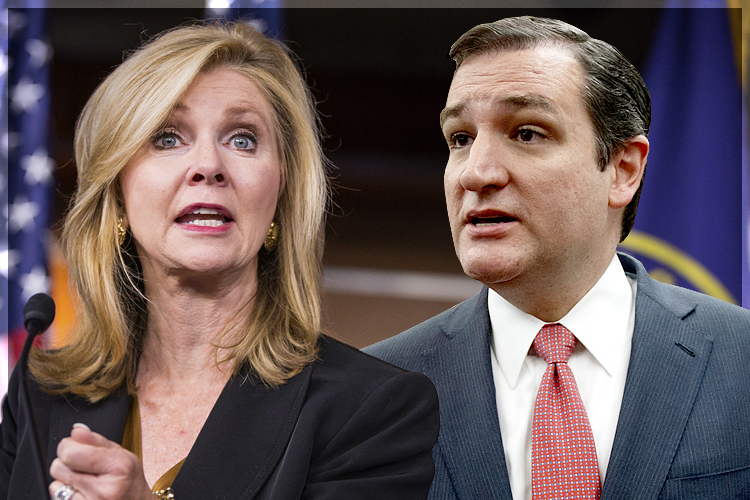Given how hostile the Republican Party is to them, whenever Latino-rights advocates are mad at President Barack Obama or the Democrats, they resort to one thinly veiled threat: Latinos just might skip going to the polls this coming election.
Since the White House announced that the president would delay executive action providing undocumented immigrants a reprieve from deportation until after the midterms, such frustrated talk has made a resurgence. Members of the Congressional Hispanic Caucus expressed this concern in a meeting with the White House last week while Presente Action, a Latino social-justice organization, is urging Latinos to think twice before showing up at the polls for Democrats who’ve opposed immigration reform.
Most Latino-rights groups and activists are careful not to discourage members of their community from voting directly. But after enough iterations, the observation that inaction on immigration may have a chilling effect on voter participation, like the stream of will-they-won’t-they news stories about Latino turnout, come to resemble a self-fulfilling prophecy.
Here’s a time-saver: Latinos won’t be showing up in force on Election Day this year, and it has less to do than advocates would like to think with Obama or the Democrats’ inaction on immigration.
For decades, Latinos have been some of the most disengaged voters. Fewer than half of eligible Latinos cast ballots in the last election, and a mere 30 percent are projected to show up on November 4 this year. Voting rates for this demographic are far lower than those of white voters, who participated in the 2012 election at a rate of 64 percent, but also lower than those of blacks or Asian Americans.
Every election season, there’s a glut of misleading stories about how “more Latinos than ever“ or “a record number” will be showing up at the polls, which is supposed to show how powerful this group is becoming. But the size of every demographic increases in every election. True, as the fastest-growing segment of the U.S. population, Latinos will wield outsized and increasing influence each time Americans head to the polls, but that’s only by dint of their rapidly increasing numbers.
Their voting rates — the real gauge of political engagement — have hardly budged in the last 20 years. Only 59 percent of eligible Latino voters are even registered; in fact, the number signed up to vote actually declined between 2008 and 2010. It’s understandable for Latino groups to portray their constituency as more potent than it really is, but if advocates want politicians to listen, they should focus more energy on voter registration.
To be fair, Latino advocacy organizations — at least at the national level — are doing just that. In an effort led by the National Council of La Raza, the country’s largest Latino-rights group, 50 groups banded together to sign up 250,000 new Latino voters in advance of the midterms. They know registration is the key to unlocking Latinos’ potential.
But registering a quarter million new voters will hardly make a dent in the problem. If Latinos are to fulfill their potential as a political force, it’ll have to happen on a state to state basis, with local groups taking the lead. Which brings up a related point: It’s misleading to talk about the “Latino vote” as if it were one thing. While attacks on immigrants from the right have helped forge a sense of pan-ethnic identity — even Puerto Ricans, who are born U.S. citizens, see the GOP’s anti-immigrant rhetoric as an affront to their community — if you ask Latinos about their ethnicity, most continue to refer to themselves by their national-origin group.
And voting behavior among Latinos varies widely from state to state. In Florida, where a large chunk of the Latino population is Cuban, Latinos voted at a rate of 62 percent in the last election. Compare that with Texas, where only 39 percent of eligible voters showed up.
Advocates shouldn’t bet on anger over immigration to drive Latinos to the polls, either. In California, Latinos turned out en masse against the GOP in the 1990s, when the state passed anti-immigrant measure Proposition 187 under the leadership of Republican Governor Pete Wilson. But Arizona’s anti-immigrant law SB 1070, whose provision requiring racial profiling by state law enforcement was struck down by the courts, has failed to have a similar mobilizing effect. Unlike California, where a strong labor movement helped turned anger into action by registering voters, Arizona is a “right-to-work” state. Furthermore, there is no cohesive, nationwide network like the black church to mobilize Latino voters.
Part of the reason Latino-rights advocates talk about staying home on Election Day when they’re frustrated with Democrats is that they’re in a bit of a hostage situation. However bad the Obama administration has been on deporting undocumented immigrants, which it’s done at record rates, or however angry advocates might be at Dems for failing to get immigration reform passed, they’re not about to vote for Republicans. Democrats could be blamed for not pushing hard enough to get immigration passed, and the president for dragging his feet on an executive order that would provide relief in the meantime. But they’re not using terms like “wetback” and “anchor baby,” pushing to repeal the Fourteenth Amendment, or voting to deport all 12 million undocumented immigrants, including those brought to the U.S. as children.

